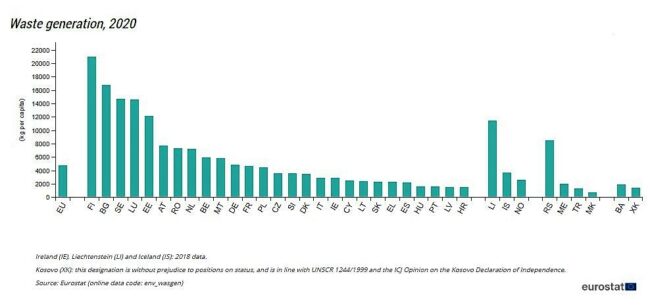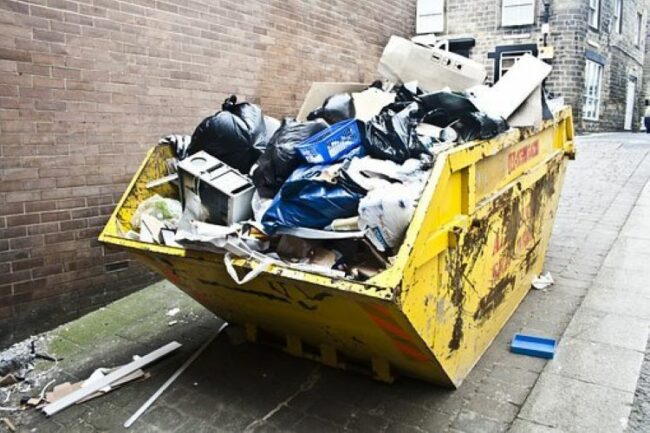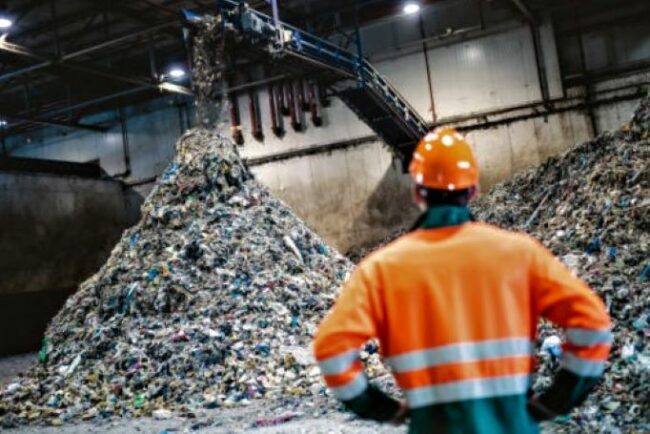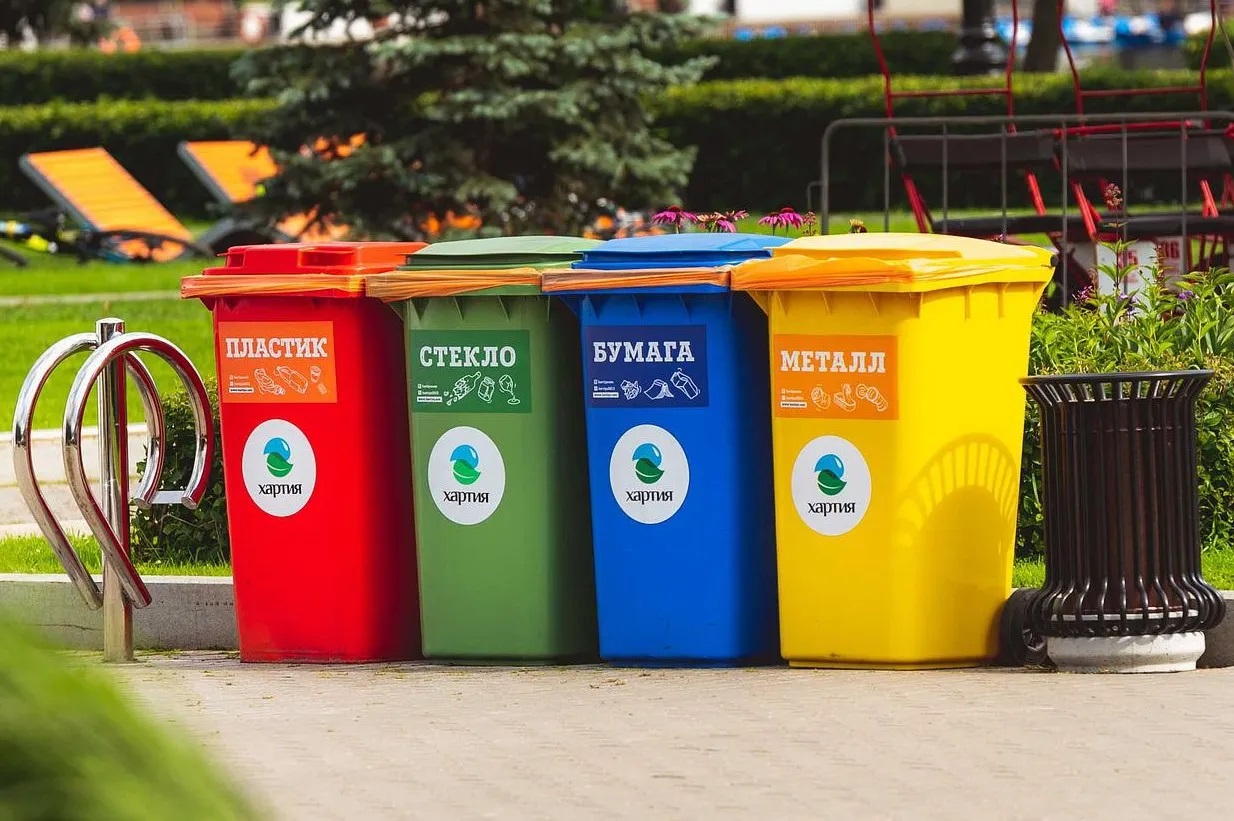Energy waste is not good. Pilling waste won’t lead us to save climate But, using waste to make energy is good. It’s more than good – it’s preferable to be practiced more. Did you know that an average European “produces” 4.8 tons of garbage from all sources? According to the Eurostat data, 39,2% of trash was recycled. That’s good. But also 31,3% were landfilled. That’s not good at all.

What’s waste?
Waste is any substance or object which is disposed of or is required to be disposed of according to the provisions of national laws.
What’s waste disposal?
Waste disposal means the collection, transport, and treatment of garbage. It also means the way it is stored above or under the ground. The best way of managing the disposal of garbage is to reuse it or recycle it. In short, we need more waste recovery, because re-using and recycling is an easier but less effective way.
What’s waste recovery?
Recovery of waste means making any step that will result in trash serve a useful purpose. To do so, garbage should replace other materials usually used to serve a particular function. Previously garbage should be prepared to take that function on the site of disposal or in the plant itself.
So, it differs a bit from recycling.
What’s waste recycling?
Recycling of waste is defined in the Waste Framework Directive as a recovery operation by which refuse materials are reprocessed. They can be reprocessed into products, materials, or substances. And they can keep the original purpose or get a new one.
The process of recycling includes organic materials reprocessing. It does not include energy recovery and reprocessing into fuels.

What’s waste reuse?
In the term “waste reuse” the word waste doesn’t mean junk at all. How come? Reuse of waste means the materials left after the production of something are used again for something else or for the same purpose.
Can water be a waste?
Yes, it can be. In fact, it is. And it also needs treatment as other types of trash. What happens with wastewater from households and industries?
European Commission report shows that 95% of wastewater in the EU is collected. The good news is that 88% of it is biologically treated. The trend is positive, but there is still 1% of urban wastewater that is still not collected. Other 6% (and a bit more) are not well enough treated to meet biological standards.
How much water do industries spend?
Industry wastes a considerable amount of fresh water. It will be approximately about 20% of overall freshwater worldwide. After it is used in the process of production this water becomes polluted.
The data also show the greatest generators of wastewater are manufacturing, mining and quarrying, the construction industry, and the production and distribution of electricity.
In many cases, recycling systems properly clean industrial water. Also, in some cases, this water is reused or disposed of in an eco-friendly way.
What happens if the wastewater is not properly purified?
If not properly purified wastewater can contaminate the environment and pose risk to human health. Wastewater has a considerable amount of harmful chemicals, bacteria, and viruses. Untreated wastewater also contains nutrients – mostly nitrogen and phosphorous – which can damage freshwater and the marine environment.
Nitrogen and phosphorous promote the excessive growth of algae. If the algae population gets out of control it will suffocate other marine life.
Is the energy waste?
No, energy per se is not a waste. But it can stimulate the production of trash. Mostly it is e-waste that needs special treatment. As we said above, the production and distribution of electricity create trash. But, on the other hand, we can create energy from waste.
How to create energy from trash?
There are waste-to-energy plants usually sited on or nearby waste disposal sites. They burn municipal solid waste, or if you prefer garbage or trash, to produce steam in a boiler. That steam is used to generate electricity.

The waste-to-energy plants burn energy-rich debris mixture from paper, plastics, yard refuse, products made from wood, etc. This may sound scary, but this industry is subject to strict regulations.
These plants are safe, technologically advanced facilities to manage waste disposal. They operate in a way to reduces greenhouse gases, and at the same time generates clean energy. As a by-product they recycle metals. Thus, there is no (or maybe a little) danger to the climate and environment.
How do we squander energy?
Waste of energy occurs when we don’t transform energy usefully (like electricity to heat). Also, waste occurs when we lose energy during its transfer (through the utility grid). Only part of the energy undergoes useful transforming or transfer. The rest of the energy is misspent. The energy that is not used in the process of transforming or transferring is also wasted energy.
Now, we are not going to talk about big energetic policies. Let’s see what we can do at home. It is very important for your home to be energy efficient. Among other things, it is important for households to have energy-efficient everyday devices. Efficiency means how much energy the device is able usefully to transform. The device is more energy efficient the higher the percentage of the energy it usefully transforms.
Basically, the efficiency of the device is the ratio of useful energy comparing the energy required for the device to work. Manufacturers usually label their products on the matter of energy efficiency. But, you can calculate this by yourself. To calculate the kWh for a specific appliance, multiply the power rating (in watts) of the device by the amount of time (in hours) you use the device. Then divide it by 1000.
Don’t squander time
We create too much trash. Ban on plastic shopping bags and plastic espresso spoons won’t help a lot in saving the environment and fighting climate change. Think about reusing things in your household. Or how about making compost of your own using the bio-waste from your kitchen? Also, we squander energy too much. We shouldn’t. That also won’t lead us to save the climate.

